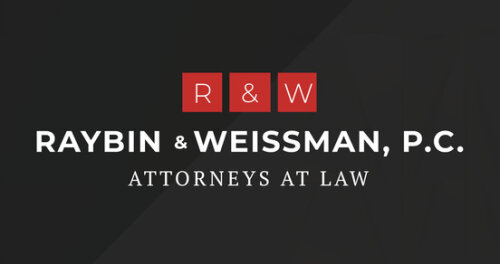Best Defamation Lawyers in Nashville
Share your needs with us, get contacted by law firms.
Free. Takes 2 min.
List of the best lawyers in Nashville, United States
About Defamation Law in Nashville, United States:
Defamation is a civil legal claim that covers false statements presented as facts that harm a person or business reputation. In Nashville, Tennessee, defamation claims follow Tennessee law and federal First Amendment principles. The two common forms of defamation are libel - false statements in a fixed medium such as print or online posts - and slander - false spoken statements. To succeed in a defamation case, a plaintiff must normally show a false statement, publication to a third party, fault by the speaker, and damages caused by the statement. How the law applies can differ depending on whether the plaintiff is a private person or a public figure, where public-figure plaintiffs face a higher fault standard.
Why You May Need a Lawyer:
Defamation disputes can be complex and fact-intensive. You may need a lawyer in these common situations:
- You have suffered serious reputational harm - lost business, employment consequences, or emotional distress - from published allegations.
- The alleged defamer is a large media organization, social-media platform, or a persistent online poster and you need help assessing liability and damages.
- You want to unmask an anonymous internet poster - counsel can help pursue subpoenas and handle federal and state constitutional issues.
- You received a cease-and-desist letter or a demand for retraction and need advice on whether to respond or pursue settlement.
- There is a threat of litigation and you need to prepare court filings, evidence, witness statements, or consider filing an anti-SLAPP style defense if applicable.
- You need help balancing free-speech protections with reputation rights, or are unsure whether the statements are factual or protected opinion.
Local Laws Overview:
Key legal points relevant in Nashville and Tennessee include:
- Elements of defamation - Tennessee requires a false statement of fact, publication to a third party, fault, and harm. The exact proof required can vary by context.
- Fault standards - Private individuals generally must show the defendant was at least negligent about the truth. Public officials and public figures must show actual malice - that the defendant knew the statement was false or acted with reckless disregard for the truth - reflecting federal First Amendment protections.
- Damages - Victims may recover compensatory damages for reputation loss and emotional harm. In some cases, punitive damages may be available if the defendant acted maliciously or with reckless disregard.
- Statute of limitations - Tennessee imposes a relatively short filing deadline for defamation claims. It is important to act promptly to avoid losing your right to sue.
- Common defenses - Truth is an absolute defense. Opinion, rhetorical hyperbole, privilege (absolute or qualified for certain communications), and consent are other common defenses.
- Online speech and anonymity - Courts handle requests to identify anonymous speakers through subpoenas or court orders, balancing the plaintiff’s need for identity with First Amendment concerns.
Frequently Asked Questions:
What counts as defamation in Nashville?
Defamation is a false statement of fact presented to others that harms your reputation. Statements framed as opinions, rhetorical exaggeration, or true statements are generally not defamatory. Whether a particular statement is defamatory often depends on context, how an ordinary reader would interpret it, and whether it can be proven false.
How long do I have to sue for defamation in Tennessee?
There is a limited time to file a defamation lawsuit under Tennessee law. Because time limits can vary based on case specifics and recent changes to statutes, consult an attorney promptly so your potential claim is not barred by lapse of time.
What must I prove to win a defamation case?
Generally you must prove the defendant made a false statement of fact about you, published it to someone other than you, acted with the required level of fault, and that you suffered damages. If you are a public figure, you must also prove actual malice. Evidence typically includes the defamatory statement, proof of publication, witness testimony, and documentation of harm.
Is truth always a defense?
Yes. A statement that is true is a complete defense to a defamation claim. If the defendant can establish the statement was substantially true, the claim normally fails even if some details were inaccurate.
Can I sue an anonymous online poster?
Possibly. Plaintiffs often use court procedures to obtain subpoenas to identify anonymous posters from service providers or platforms. Courts will weigh the plaintiff’s need to unmask the speaker against free-speech and privacy interests. A qualified attorney can help prepare the required showing to the court.
Should I send a cease-and-desist letter or demand a retraction?
Often a carefully drafted demand letter or request for retraction can lead to removal, correction, apology, or settlement without litigation. However, in some circumstances a demand letter can escalate conflict or be ignored. An attorney can advise whether a demand letter is appropriate and can draft it to preserve your legal rights.
What kinds of damages can I recover?
Compensatory damages for lost income, lost business, and emotional distress are common. Punitive damages may be available if the defendant acted with malice or reckless disregard. In some cases courts may order injunctive relief, corrections, or retractions. Each case depends on the facts and legal standards.
How much does a defamation case cost?
Costs vary widely. Expenses can include attorney fees, court costs, expert witnesses, and discovery costs. Some attorneys take defamation cases on contingency or hybrid fee arrangements. Discuss fee structure and likely expenses during an initial consultation.
Are there quicker alternatives to filing suit?
Yes. Mediation, arbitration, settlement negotiations, or requesting a public retraction or correction may resolve disputes faster and less expensively than litigation. A lawyer can help pursue these alternatives and evaluate whether they are likely to accomplish your goals.
Can I be counter-sued if I sue for defamation?
Yes. Litigation can lead to counterclaims, including claims for tortious interference or claims that your suit is frivolous. Some jurisdictions also have anti-SLAPP protections that can provide early dismissal for suits that chill free speech. Discuss risk management and defensive strategies with counsel before filing suit.
Additional Resources:
Helpful local and regional resources include:
- Tennessee Bar Association - for lawyer referral and statewide legal resources.
- Nashville Bar Association - local referrals and guidance on finding litigation counsel in Nashville.
- Legal Aid Society of Middle Tennessee and the Cumberlands - for people who qualify for civil legal help.
- Davidson County Clerk and the Nashville courthouse self-help resources - for filing procedures and court rules.
- Local media law or First Amendment practice groups and law school clinics - sometimes provide expertise or limited assistance in media and defamation matters.
Next Steps:
If you believe you are a victim of defamation in Nashville, consider these steps:
- Preserve evidence - save screenshots, emails, recordings, witness names, and dates. Preserve the original source and any metadata you can access.
- Document harm - keep records of lost business, communications from employers or clients, medical notes for emotional harm, and other evidence of damages.
- Avoid public responses that could worsen the situation - consult a lawyer before posting or repeating allegations.
- Contact a qualified Nashville attorney who handles defamation, media law, or civil litigation for an evaluation. Prepare to discuss timelines, evidence, and goals.
- Consider demand letters or alternative dispute resolution with counsel before filing suit, but act quickly to protect your legal rights within statutory time limits.
- If you cannot afford private counsel, contact local legal aid organizations or law school clinics for potential assistance.
This guide is for informational purposes only and does not substitute for legal advice. Laws change and individual circumstances vary. Consult an experienced Nashville attorney to evaluate your specific situation and options.
Lawzana helps you find the best lawyers and law firms in Nashville through a curated and pre-screened list of qualified legal professionals. Our platform offers rankings and detailed profiles of attorneys and law firms, allowing you to compare based on practice areas, including Defamation, experience, and client feedback.
Each profile includes a description of the firm's areas of practice, client reviews, team members and partners, year of establishment, spoken languages, office locations, contact information, social media presence, and any published articles or resources. Most firms on our platform speak English and are experienced in both local and international legal matters.
Get a quote from top-rated law firms in Nashville, United States — quickly, securely, and without unnecessary hassle.
Disclaimer:
The information provided on this page is for general informational purposes only and does not constitute legal advice. While we strive to ensure the accuracy and relevance of the content, legal information may change over time, and interpretations of the law can vary. You should always consult with a qualified legal professional for advice specific to your situation.
We disclaim all liability for actions taken or not taken based on the content of this page. If you believe any information is incorrect or outdated, please contact us, and we will review and update it where appropriate.









